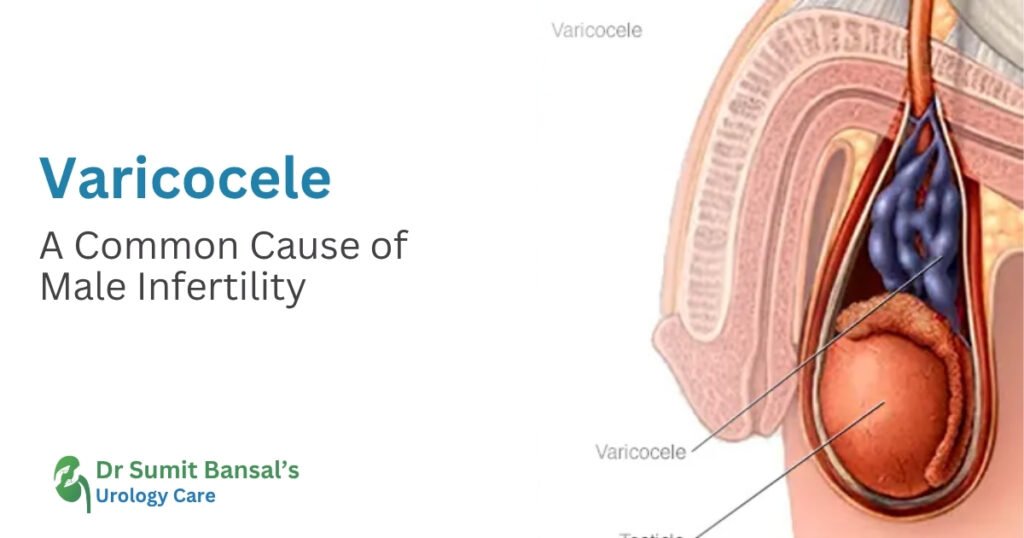By Dr. Sumit Bansal – Minimal Access Urologist, Uro-Oncosurgeon & Kidney Transplant Surgeon
Infertility affects millions of couples worldwide, and in many cases, the underlying cause lies with the male partner. One of the most common — and often overlooked — causes of male infertility is Varicocele.
What is Varicocele?
A Varicocele is an abnormal enlargement of the veins within the scrotum, similar to varicose veins in the legs. These veins, known as the pampiniform plexus, help regulate testicular temperature. When they become enlarged, they can disrupt normal blood flow, causing heat buildup and reduced sperm production.
How Common is Varicocele?
Varicocele affects:
15% of all adult men
Up to 40% of men with infertility issues
It is most commonly found on the left side due to anatomical reasons but can sometimes affect both sides.
Symptoms of Varicocele
Most men with varicocele don’t experience noticeable symptoms. However, some may report:
A dull or aching pain in the scrotum
A feeling of heaviness or dragging sensation
Visible or palpable enlarged veins
Shrinking of the testicle (testicular atrophy)
Trouble conceiving despite regular unprotected intercourse
How Does Varicocele Affect Fertility?
Varicocele can raise the temperature in the scrotum, which affects sperm quality and production. It can lead to:
Low sperm count
Poor sperm motility (movement)
Abnormal sperm morphology (shape)
In many cases, treating varicocele can significantly improve sperm parameters and increase the chances of natural conception.
Diagnosis of Varicocele
Diagnosis typically involves:
Physical examination – Doctor may feel enlarged veins when standing.
Scrotal ultrasound – Confirms the presence and grade of varicocele.
Semen analysis – To assess sperm count and quality.
Hormonal tests – To evaluate testosterone and other reproductive hormones if needed.
Treatment Options
Not all varicoceles need treatment. However, in cases of infertility, testicular pain, or testicular shrinkage, intervention is often advised.
Common treatment options include:
Varicocelectomy: A minimally invasive surgical procedure to tie off the enlarged veins and redirect blood flow.
Microsurgical varicocelectomy: Highly precise and effective, with low complication rates.
Embolization: A non-surgical, radiology-guided procedure to block blood flow to the affected veins.
Why Choose Dr. Sumit Bansal?
When it comes to male infertility and varicocele treatment, expertise matters. Dr. Sumit Bansal, a renowned Minimal Access Urologist, Uro-Oncosurgeon, and Kidney Transplant Surgeon, brings extensive experience in advanced laparoscopic and microsurgical techniques for varicocele repair.
Based at Manipal Hospital, Gurugram & Dwarka, Dr. Bansal combines evidence-based medical care with a compassionate approach,


